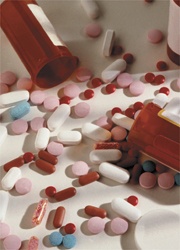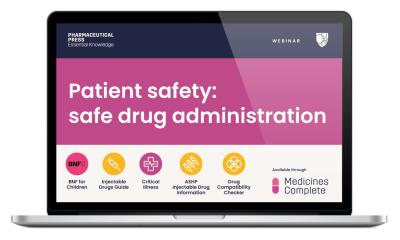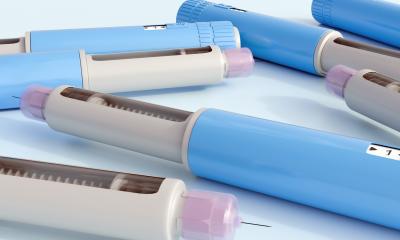Adverse drug reactions
Cases cost thousands and take up 4% of beds
Although most patients do not react badly to prescriptions, a new study has found that one in 16 hospital admissions (in two hospitals) were caused by adverse drug reactions, and these resulted in an average of 8-day inpatient stays, using 4% of the hospitals' bed capacity.

Therefore, in all, adverse drug reactions alone could cost the UK’s healthcare service about £466m per annum.
Gastrointestinal bleeding was found to be the most common reaction seen, and among the most commonly implicated drugs were low dose aspirin, diuretics, warfarin, and non-steroidal anti-inflammatory drugs, in a new study by researchers at Liverpool University (pub: British Medical Journal).
For their survey, the drug history and symptoms of 18,820 patients aged over 16 years, were assessed after they had been admitted to two Merseyside hospitals over a six-month period. 1,225 admissions (a prevalence of 6.5%) were due to adverse drug reactions. Most of the patients recovered, but 28 (2.3%) died as a direct result of the reaction, yet the researchers pointed out that about 70% of their reactions could have been definitely - or possibly - avoidable during prescribing: ‘Simple measures, such as a regular review of prescriptions, computerised prescribing and the involvement of pharmacists in assessing prescribing behaviour, may all reduce the burden caused by adverse drug reactions.’
The study also implied that, nationally, 5,700 patients may be dying due to adverse drug reactions, but the number might be even higher, because the research did not include numbers who died from adverse reactions to drugs received during hospital stays. The team concluded that measures are urgently needed to reduce this healthcare burden.
In the UK, the safety of drugs is continuously monitored by the Medicines and Healthcare Products Regulatory Agency (MHRA), which investigates all and any emerging safety issues. The country’s Department of Health is now considering the introduction of an ‘online yellow card’ and modernising the way reactions to drugs are reported.
01.09.2004





